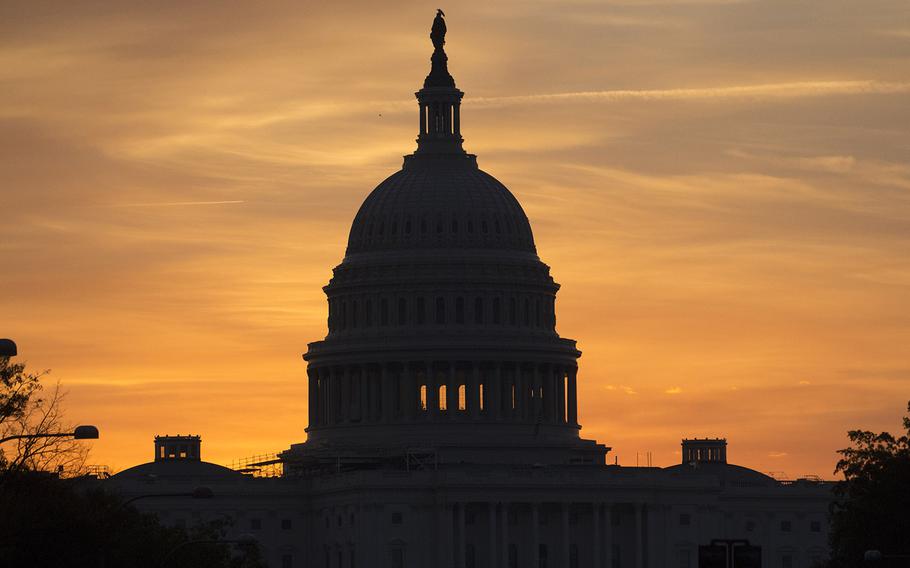
The U.S. Capitol at dawn on Oct. 30, 2016. (Stars and Stripes)
WASHINGTON -- A provision to rename 10 Army bases that honor Confederate generals has made it into the final 2021 National Defense Authorization Act, according to a Democratic aide, rejecting a veto threat from President Donald Trump.
The final NDAA includes a proposal by Sen. Elizabeth Warren, D-Mass., that would rename military bases and assets honoring Confederates within three years. It was passed by the Republican-led Armed Services committee. Each chamber of Congress passed its NDAA this summer, setting funding and policy priorities for the military. Now Capitol Hill is negotiating a final bill to send to the president to be signed, which could be one of the last major acts of Trump’s presidency.
Multiple Democratic aides said Oklahoma Republican Jim Inhofe, the chairman of the Senate Armed Services Committee, made moves to block the proposal from getting into the final NDAA in order to keep the Confederate names intact. Inhofe’s office did not respond to a request for comment.
To the ire of Trump, lawmakers on Capitol Hill have moved to use the 2021 NDAA as a vehicle to rename bases and banish Confederate flags after the May 25 killing of George Floyd by police in Minneapolis and subsequent nationwide protests over police brutality.
Congress has turned more attention to scrubbing Confederate references on military bases to reconcile with racial injustice — something the services have the power to do on their own.
The 10 Army posts named in honor of Confederate generals are Camp Beauregard and Fort Polk in Louisiana; Fort Benning and Fort Gordon in Georgia; Fort Bragg in North Carolina; Fort A.P. Hill, Fort Lee and Fort Pickett in Virginia; Fort Rucker in Alabama, and Fort Hood in Texas. The installations were named primarily during the south’s Jim Crow era in the 1910s and 1940s.
The issue of renaming Army bases hit a boiling point during the summer. It picked up momentum when senior military leaders such as then-Defense Secretary Mark Esper and Army Secretary Ryan McCarthy backed the idea. The Senate and House then passed versions of the NDAA, which sets funding and policy priorities for the Pentagon each year, with a provision to rename the bases.
It’s unclear why Republicans stopped fighting the renaming measure, but Trump made a last-minute threat against the must-pass $740 billion military funding measure unless it repeals Section 230 of the 1996 Communications Decency Act, calling it a “liability shielding gift” to “big tech.”
Section 230 provides legal protection for technology companies over content from users and third parties.
Bloomberg Government reported that Speaker of the House Nancy Pelosi and Senate Majority Leader Mitch McConnell are going to bring the NDAA to a vote in both chambers without any action on Section 230, rebuking the president’s threat.
Beynon.steven@Stripes.com Twitter: @StevenBeynon